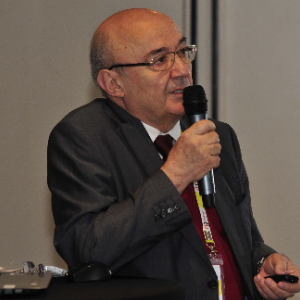Title : Detoxication therapy in stroke
Abstract:
At present, due to introduction of highly informative instrumental methods of assessment of cerebral blood flow state, microcirculation system and brain tissue metabolism diagnosis or vascular diseases of the brain is significantly improved. This brought to reassessment of existent conventional methods of pharmacological treatment of cerebrovascular disorders. Therefore, currently methods and tools that could positively influence different stages of disturbed homeostasis during cerebral blood flow disturbance, and primarily its immunoreactivity are searched. Application of efferent medicine methods is considered promising. This is based on removal of xenobiotics or endogenous toxic compounds exerting harmful influence on function and structure of different organs and systems and determining features of pathological process during different diseases. Detoxication methods are not widely applied in clinical neurology, although there is some experience in patients with multiple sclerosis, myasthenia gravis, toxic radiculoneuropathy and chronic atherosclerotic encephalopathy. Cellular and molecular mechanisms of cerebrovascular disease have been studied, establishing that products of catabolite disintegration of cellular receptors (R-proteins) are the markers of development of pathological process in cerebrovascular diseases. While accumulating in pathological locus, R-proteins enter bloodstream and reach other organs and tissues. Competing with cellular receptors for hormon?s, the other mediators of cellular metabolism, they, through intercepting ligands, are able to disrupt homeostasis either on the level of a single cell and in the whole organism. According to current concept, disturbance of cellular reception or its inversion are the mechanisms responsible for complicated interconnected and interdependent processes that bring to shift of homeostasis on different levels and eventually to development of cerebral discirculatory lesions. Therefore, application of modern detoxication agents for elimination of homeostatic and metabolic disturbances developed on the different levels of stroke evolution is becoming justified. We widely use colloid plasma-substituting solutions, particularly OslaDex with mean molecular weight of 200.000 daltons. There are different points of view regarding use of therapeutic hemodilution (TH) in acute ischemic stroke. Guided by packed cell volume and blood viscosity, clinicians often underestimate importance of hemorheology indices, plasma viscosity and erythrocyte aggregation. Therefore, improvement of collateral blood supply in the brain areas adjoining to the lesion is an important component of therapeutic measures in the treatment of acute ischemic stroke. TH should provide sufficient decrease in viscosity of the whole blood and plasma. Hematocrite indices are in direct proportion to indices of the whole blood viscosity. Having correctly calculated packed cell volume blood circulation will improve and delivery of oxygen to brain tissues will increase. Hemodilution is indicated in ischemic stroke, because of dehydratation and hypovolemia symptoms revealed in these patients, therefore even simple use of substitution therapy promotes improvement of cerebral circulation and optimal results are enabled by hypervolemic TH. At the same time possible hypovolemia should be avoided. Hypervolemic TH reliably and quickly increases cardiac output, while incorrect application of isovolemic TH could induce negative hemodynamic effects. Further treatment is based on individual bases and includes hypervolemia TH, local and general use of fibrinolytics, heparinisation, injection of vasoactive medications and plasmapheresis.




